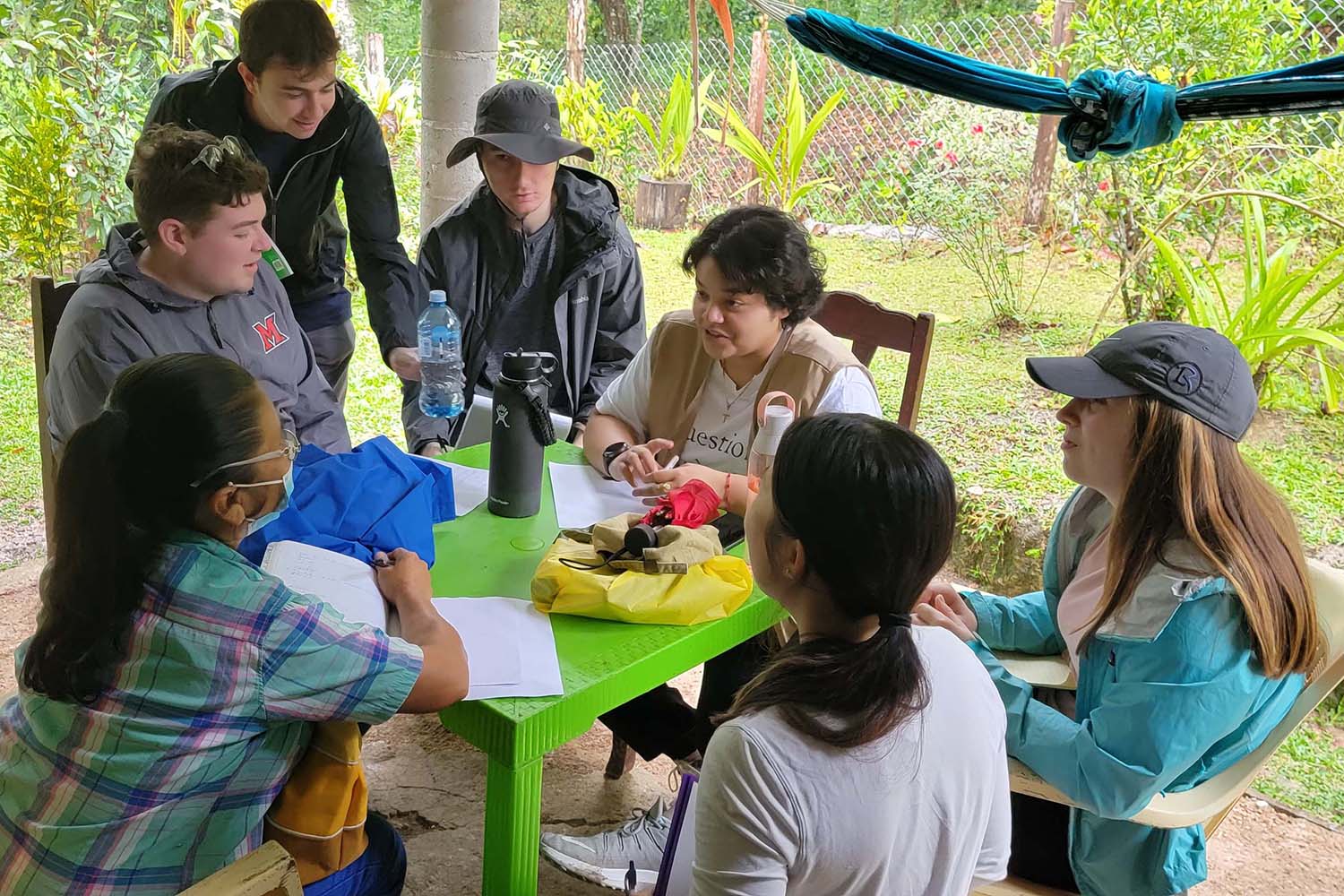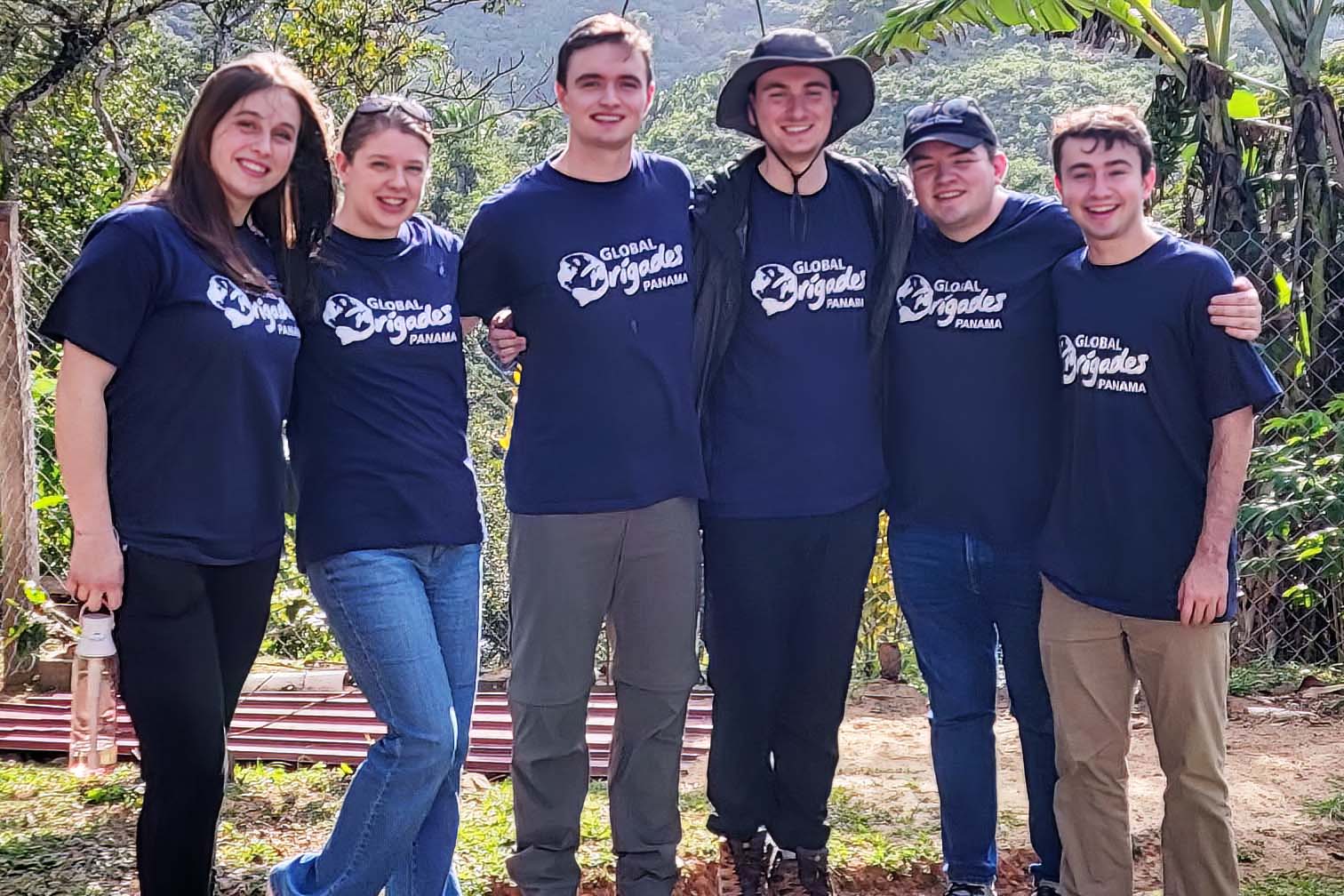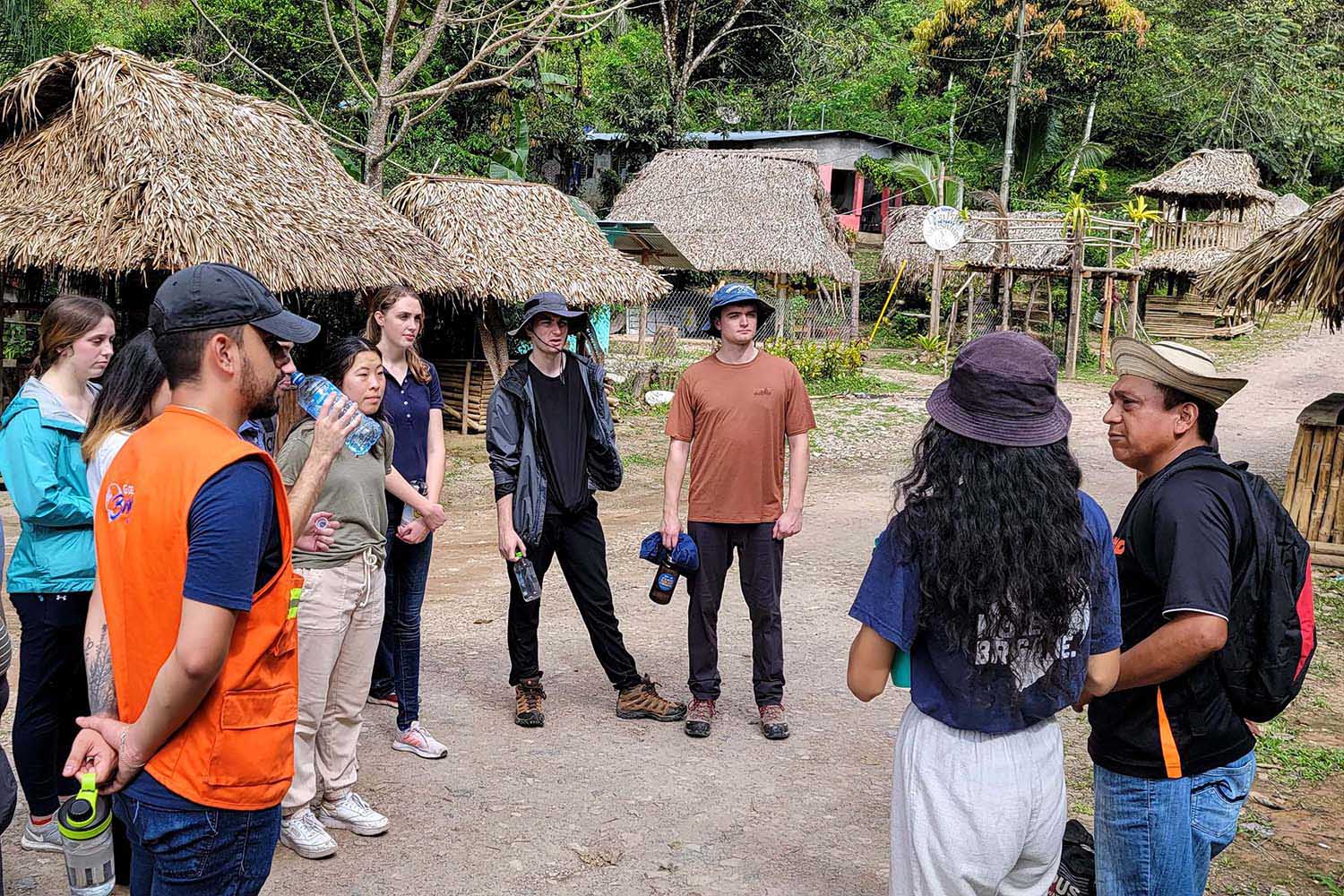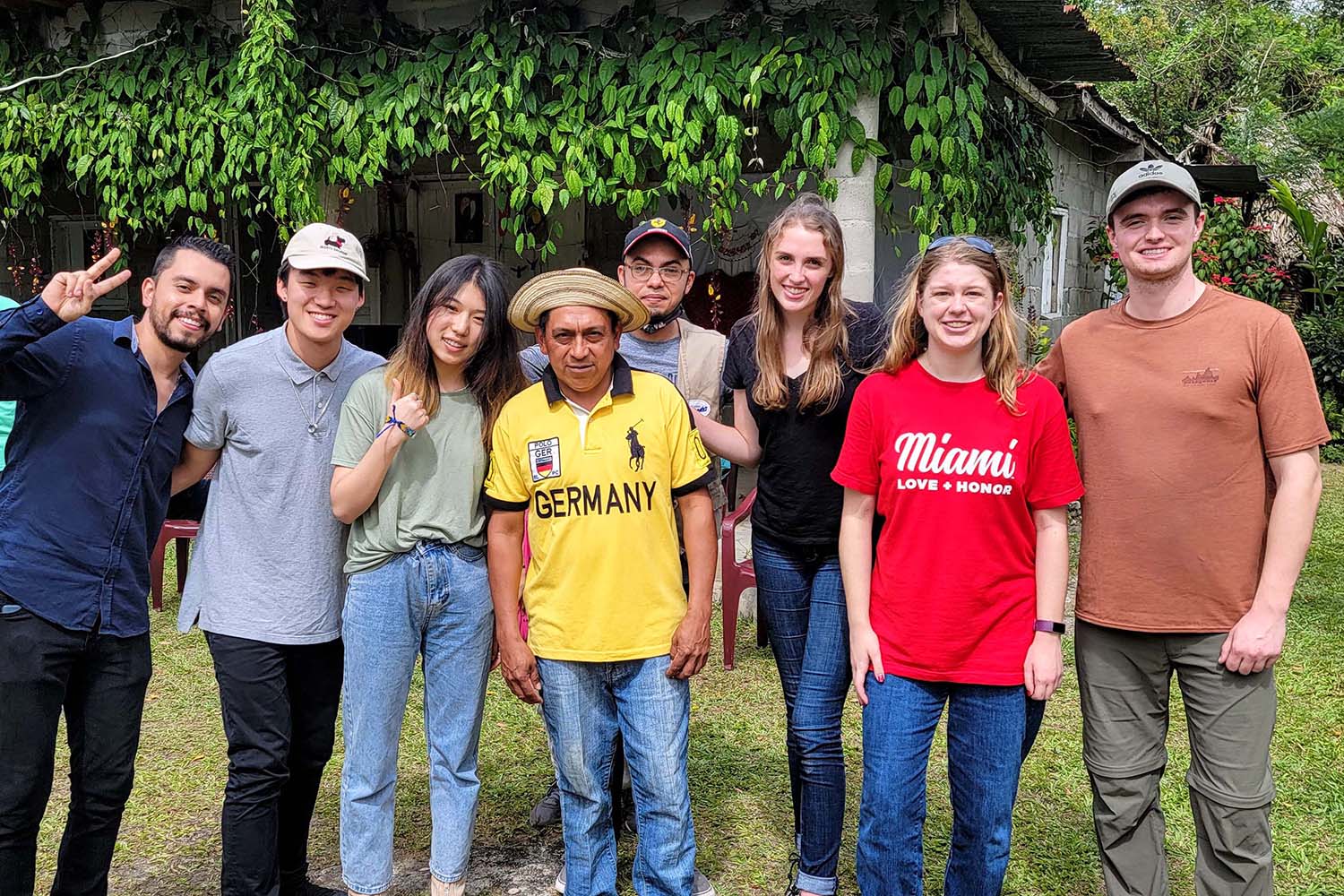Global Business Brigades bring financial lessons to rural Panama entrepreneurs
Several Miami and Farmer School students spent part of their winter break in Panama, but it wasn't for vacation.

Global Business Brigades bring financial lessons to rural Panama entrepreneurs
For a week during winter term last month, a half-dozen Farmer School and Miami University students took on the role of advisers and consultants not just far from home, but on a different continent.
Global Business Brigades is an international movement of college students and professionals cooperating to build economic opportunities in the developing world by working alongside promising entrepreneurs to create financial opportunities in remote, rural, and under-resourced areas.
“They identify businesses that need help or that they think would be interested in working with students and getting more information about how to maintain their books or whatever they need,” junior finance and accounting major Nick Timmons said. “We go in and ask questions about what they want help with. And we also see, based on our knowledge, what we think they need help with.”
The Miami students, joined by a few students from Carnegie Mellon, took their knowledge and skills to rural Panama this year, splitting into groups to work with different businesses.
“I focused a lot on the finances, making sure that they were doing good recordkeeping and that everything was written down so they know how much money they're actually making,” Timmons said. “A lot of the time, they think it’s correct in their head but they don't actually know what's going on.”
“One woman was selling chickens. We worked with somebody who was putting together her own marketplace in the community because the supermarket was so far away,” fifth-year analytics student Heather Merhout said. “We went to another more art-centered community and worked with a person who mostly carved soapstone for a living. Our other group worked with someone who wove a lot of crafts and hats, many from many plants that he has in his own backyard.”
“One of the groups gave a 10-year plan to a person who had these super ambitious goals, a plan on how ‘You do these steps, then you buy this, then you do these steps and you buy this,’ and things like that,” Timmons said.
“We tried to identify weak spots in the businesses and say, “OK, let's help you keep better inventory management. We made a ton of accounting sheets for them to use that'll hopefully be in use for a long time,” Merhout said. “For marketing, we developed a couple of digital business cards, because they all have phones and were using WhatsApp.”
“They had a good knowledge on what customer service was. A lot of them had good inventory management practices, marketing practices, etc. Seeing how those tactics are used in a completely different country by people who might not have learned them in the way we do was fascinating,” Merhout said.
While the trip was focused on business, there were additional benefits for the students.
“We were getting to know the community members and their kids, getting to know their culture while talking to them. They were learning English, we were learning Spanish. And so we’re getting a cultural experience along with doing business with them,” Timmons said.
“We got to develop good relations with not only our translators, but also with the people we were working with. They all said, ‘We really hope you come back. If you ever visit, our houses are open,’ Merhout said. “So just being able to develop friendships in faraway places was really nice.”
“I think it helps a lot to have a global mindset and understand how businesses run in other countries,” Timmons said.


